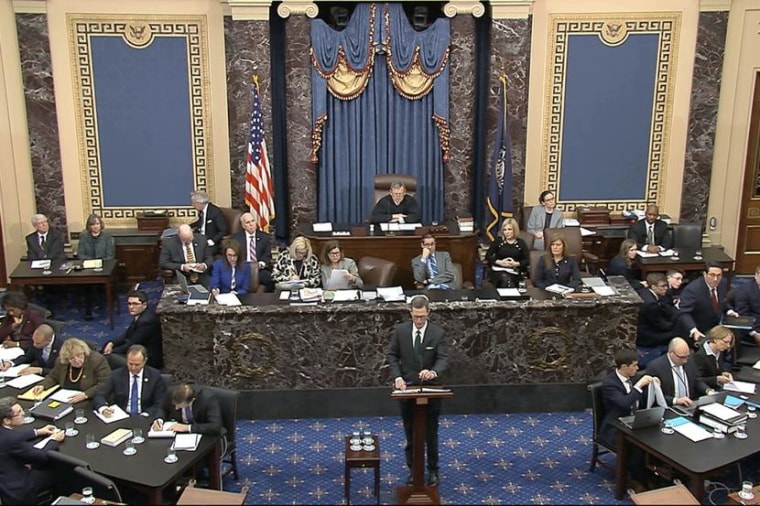In just five hours, the U.S. Senate will begin its second impeachment trial of Donald J. Trump, considering an article approved by the U.S. House, accusing the Republican of "incitement of insurrection." Each side will have up to 16 hours to present their case, and by most accounts, the proceedings will take about a week.
As the trial gets underway, there's no shortage of questions to keep in mind.
Is Trump guilty? The evidence against the former president is overwhelming. It helps explain why the House vote to impeach Trump was the most bipartisan in American history. It's difficult to get around the simple fact that were it not for Trump's efforts to undermine his own country's democracy, the attack on the Capitol would not have occurred.
Does Trump have much of a defense? The former president's latest legal defense team -- he's gone through a few -- filed its first trial brief with the Senate last week, and it was a mess. Those same attorneys filed a revised trial brief yesterday, and by some measures, it was worse.
The document is filled with strange factual errors; it constructs "an alternative reality" of what transpired on and around Jan. 6; and it relies heavily on the work of a law school professor who has publicly explained that Trump's lawyers have "badly" misrepresented his work and engaged in "flat-out misrepresentations."
What's more, much of the Republican's defense rests on the idea that the Senate shouldn't even be allowed to consider the case because Trump is now a private citizen, which is (a) rather ironic, since GOP senators wouldn't allow the trial to proceed while Trump was still in office; and (b) badly at odds with the historical record, since there is precedent for impeachment trials against those who are no longer in office.
What would it take to convict Trump in this case? If every member of the Senate Democratic conference votes to convict the former president at the end of the trial -- which seems likely -- they would need to be joined by 17 Senate Republicans.
Is that likely? At this point, no. It's not inconceivable that some GOP senators will consider the evidence and vote to convict, but many Republicans freely insist that their minds are already made up, and they're prepared to stick with their disgraced former president.
But what wasn't there reporting last month pointing in the opposite direction? The New York Times reported exactly one month ago today, "While it seemed unlikely that 17 Senate Republicans would join Democrats for the two-thirds necessary for conviction, the anger at Mr. Trump was so palpable that [GOP] leaders said privately it was not out of the question." A separate New York Times reporter added soon after that as many as 20 Senate Republicans were "open" to convicting Trump.
That, however, was in the immediate aftermath of the deadly insurrectionist violence. As tempers cooled, those senators' partisan instincts returned to the fore. The political momentum for a conviction has largely evaporated, regardless of merit.
If there's no conviction, can Congress still vote to bar Trump from seeking elected office again? Probably not, but there may be another possible avenue. Keep reading.
Is there a backup plan if Trump is ultimately acquitted? A couple of weeks ago, Sen. Tim Kaine (D-Va.), fairly certain that a conviction was impossible, started pursuing a censure resolution as an alternative. He gave up soon after when members of both parties expressed little interest.
That said, McClatchy News reported yesterday that Democrats may revisit the issue after the trial, hoping that it might be able to serve as a vehicle to barring Trump from holding future office.
Watch this space.
